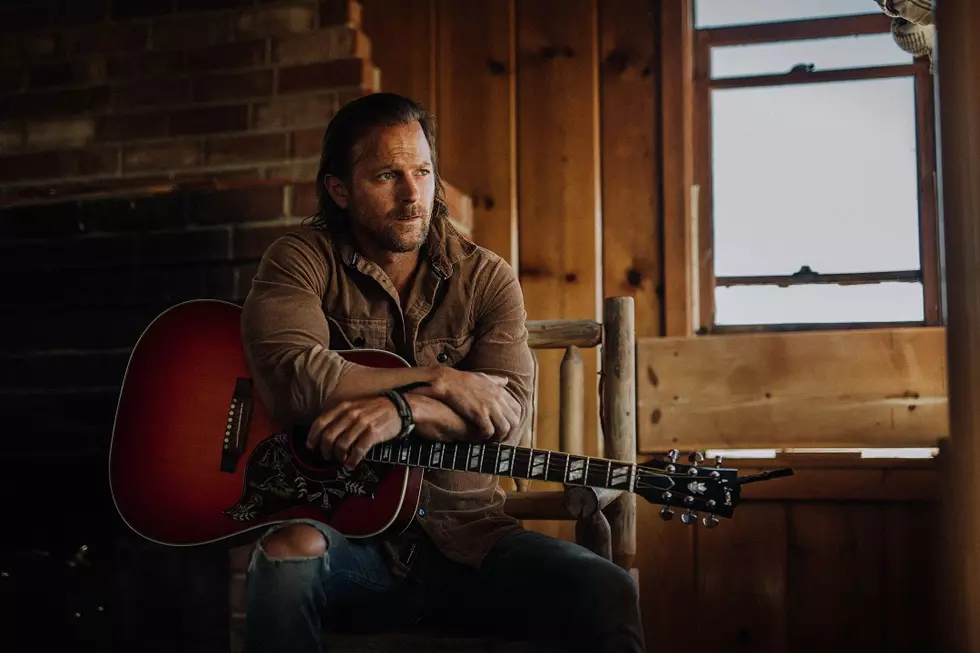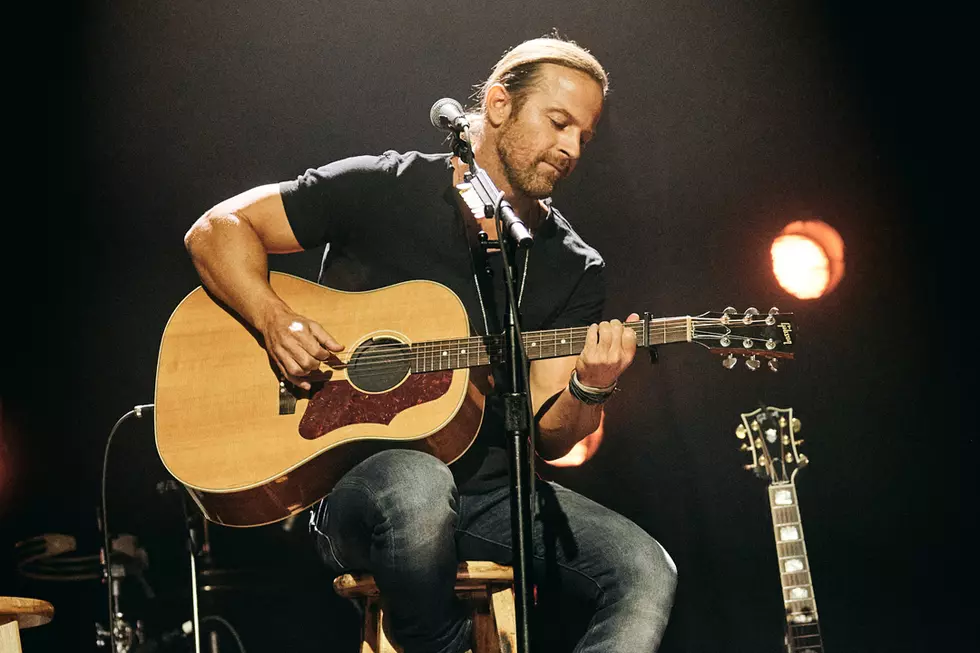
Interview: Kip Moore Digs Deeper Than Ever Before on ‘Wild World’
Listening to Kip Moore's Wild World is like having a long chat with a close friend. In the album's 13 tracks, the singer shares love and loss, some life lessons and those bits he hasn't quite figured out yet, too. It's affirming and invigorating, but maybe a little emotionally draining, too.
Wild World, out Friday (May 29) is, Moore says, "100 percent" his most personal and boldest album to date. Since the release of 2017's Slowheart, the country star told The Boot last summer, he's "been on such a journey," both physically and emotionally.
"I spend a lot of time alone with my own thoughts, and I try to address certain bones and things that I've dug a hole for, and then I try to pull them back up and I try to take a look at those regrets and look them in the eye, and I try to find a way to make peace with them and put them to bed," Moore shared in the weeks leading up to Wild World's release, "and understand, you know, what God looks like to me, where my faith lies ... [to] find that childlike joy in my own life, and simplicity."
That self-examination isn't new, Moore notes: "I've always been in the process of trying to understand who I am ... It was just more glaring to me at this particular time in my life," he adds.
"I've always been in the process of trying to understand who I am ... It was just more glaring to me at this particular time in my life."
To that end, Wild World is full of flawed characters ("Janie Blu"); songs about imperfect love; and moments of introspection and searching ("Fire and Flame"). "I tend to be a lot more honest in music than I am in my real life," Moore admits. "I'm a lot more closed off in the real world, but i'm a lot more open to the ways I actually feel in music."
"Southpaw," for example, is a character exercise of sorts: "I shoulda been a cowboy / Livin’ in the black hills / Livin’ on the outside of the law / Yeah, crazier than Wild Bill," Moore proclaims, like Toby Keith before him.
"I've always kind of felt like an outsider," reflects Moore, who was a big boxing fan growing up and decided to mix outlaw metaphors with the term for a rare, left-handed boxer after feeling "angst and anger" over what's been going on in the world.
"All we do is bicker and moan and fight, it seems like, and point fingers, and everybody just complains all the time," the singer says. "Especially after all my travels and being in all these different countries that have so little but yet just, you know, work their butts off and have a smile on their face, and they're rooted in their families, and here we have so much at our disposal ... I think i was just kind of over ... a lot of the way we were acting and carrying ourselves."
Wild World's title track mixes that same outsider mentality with a dash of parental love and advice. Moore's mom and dad, he says, "were always encouraging me to make my own path and my own journey, and [to not] fall into the mold of what society tries to make you."
"You don't have to get on that hamster wheel and fall in line ... Your [path] might look different than somebody else's, but make sure you always keep your eye on what truly makes you happy," the singer remembers them telling him. "I've just always kind of held onto those things."
It's heady, emotional stuff, but for every heartbroken "South," there's an upbeat heartland rocker like "Red White Blue Jean American Dream," and for every acoustic "Crazy for You Tonight," there's a layered, guitar-focused track like "Sweet Virginia. On Wild World, Moore expands the sound he perfected on Slowheart, with an increased focus on "percussive patterns" created by a variety of instruments.
"This is by far the most percussive record I've ever done," Moore notes. "There's a lot of movement happening."
The personal nature of Wild World reaches its apex at its final song, "Payin' Hard." Verse one is a reflection on a failed romantic relationship; verse two finds Moore grappling with regrets over lost time with his now-deceased father; and verse three reflects not a decision to walk away from music ("That's too literal," Moore says of that interpretation) but an emptying of his well of material, at least temporarily.
After each verse, Moore sings, "I’ll live with that, sleep with that / Make my peace, and I’ll die with that" -- his goal with Wild World as a whole.
"I think this whole record is a recognition of things that the character is trying to suss through," says Moore. "Yeah, I think that's what i'm summing up at the very end with that line."
LOOK: Kip Moore's Best Live Shots
More From Big Cat - Country with Attitude


![Kip Moore’s ‘If I Was Your Lover’ Video With Guest Love Interest Morgan Wade Is Spicy [Watch]](http://townsquare.media/site/204/files/2022/08/attachment-KipMoore-IfIWasYouLover-YouTube3.jpg?w=980&q=75)

![Kip Moore Teases Collaboration With Ashley McBryde [Picture]](http://townsquare.media/site/204/files/2021/02/kip-and-ashley.jpg?w=980&q=75)

